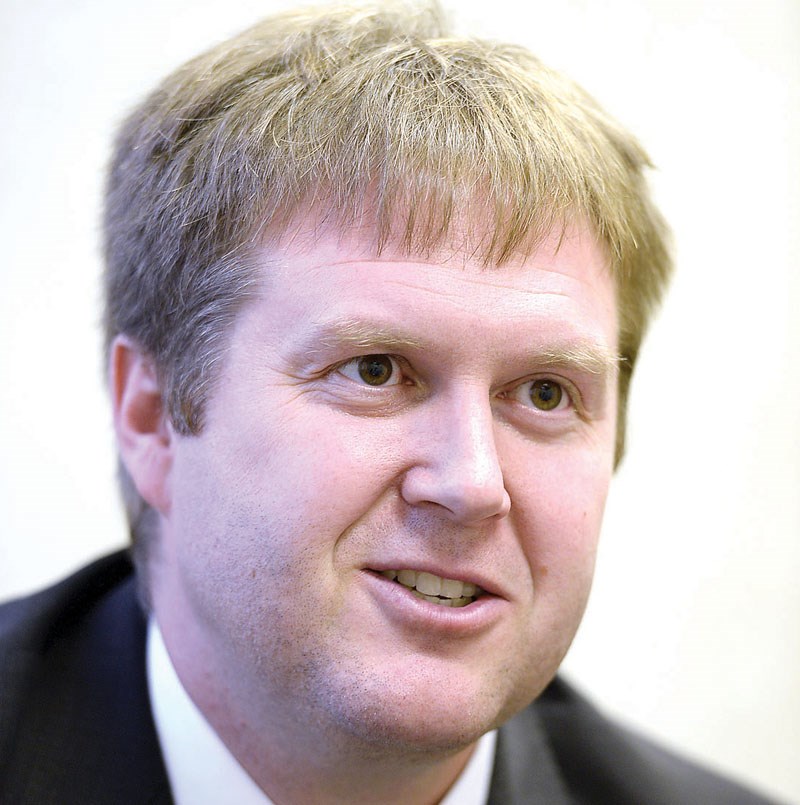Dan Brooks is only a few days into a three-year rebuilding process, but the new leader of the B.C. Conservatives is confident he can quickly turn the fourth-place party into an electoral force.
Brooks, who hails from Vanderhoof but recently relocated to Kamloops, said the province's political culture has succumbed to cynicism in recent years, but he wants to present a positive option for right-of-centre voters.
"For too long we've been stuck in the cycle of cynicism whereby we're voting against something, we're voting for the lesser of two evils," he said. "But no matter how you look at it you're still voting for evil."
He plans to position the Conservatives as a home for voters who believe in individual liberty, fiscal responsibility and grassroots democracy. He hopes to draw on supporters who feel alienated from the three parties who currently hold seats in the provincial legislature.
"The conservative movement has been broken up for an entire generation in British Columbia," Brooks said Wednesday. "Some of them are in the Liberal [party], some of them are with the Greens, some of them in our party and some of them are independent. We have to bring them all under one banner."
Brooks picked up 60 per cent of the 3,261 weighted points available in Saturday's leadership convention in Richmond, easily defeating Vancouver businessman Rick Peterson. He replaces John Cummins, who resigned after the party failed to win a seat in last spring's provincial election when the Conservatives picked up less than five per cent of the popular vote.
Peterson had locked up the support of Cummins and some other high-ranking members of the party, but Brooks prevailed after running on a platform which appealed to the party's base.
Brooks believes that the province is poised for a "transformative election" three years from now when a "blue wave" is going to sweep the province.
To get there, Brooks needs to both grow the party's membership substantially and quell the infighting that saw the Conservatives drop from a high of 20 per cent in some public opinion polls in 2012 to a distant fourth place on election day.
Brooks said he got to work right after the leadership results were announced to start making organizational changes within the party to get it ready for the next election. The board of directors is currently reviewing the party's policies and beginning in November, Brooks will begin an 18-month consultation effort with grassroots groups across the province to begin to develop a platform for 2017.
Once he's heard from members around the province, Brooks said he and his team will "boil down" the views into a coherent platform that will be thoroughly vetted by the party's candidates.
"Conservatives by our very nature we believe in individual freedom and liberty," he said. "We have a huge diversity of opinion about what needs to happen in government."
Brooks wants to have both the full platform and a slate of 85 candidates nominated by the spring of 2016 to give the party a full year to campaign and build up trust with the electorate.
While every party will have its internal differences, Brooks said it's important that the Conservatives present a united front. In the past, feuding factions of the party have led to public discord, which has damaged the party's image.
"I think our party is very well unified," he said. "We have to be unified because it's the one thing that has really hurt our image in the past; we have to be so much more unified than anybody else because even the slightest glitch really causes everything to fall apart on the media scale."
Brooks's win in the leadership race was decisive, but fewer than one third of the 4,100 party members cast a ballot during the mail-in voting period. Brooks said he's not worried about the low turnout.
"I think mail-in ballots are historically low as far as voter turnout is concerned," he said. "We had a great deal of trouble with Canada Post - I think our timing was perhaps a little bad with the change in postage rates at the same time they were being mailed in."



